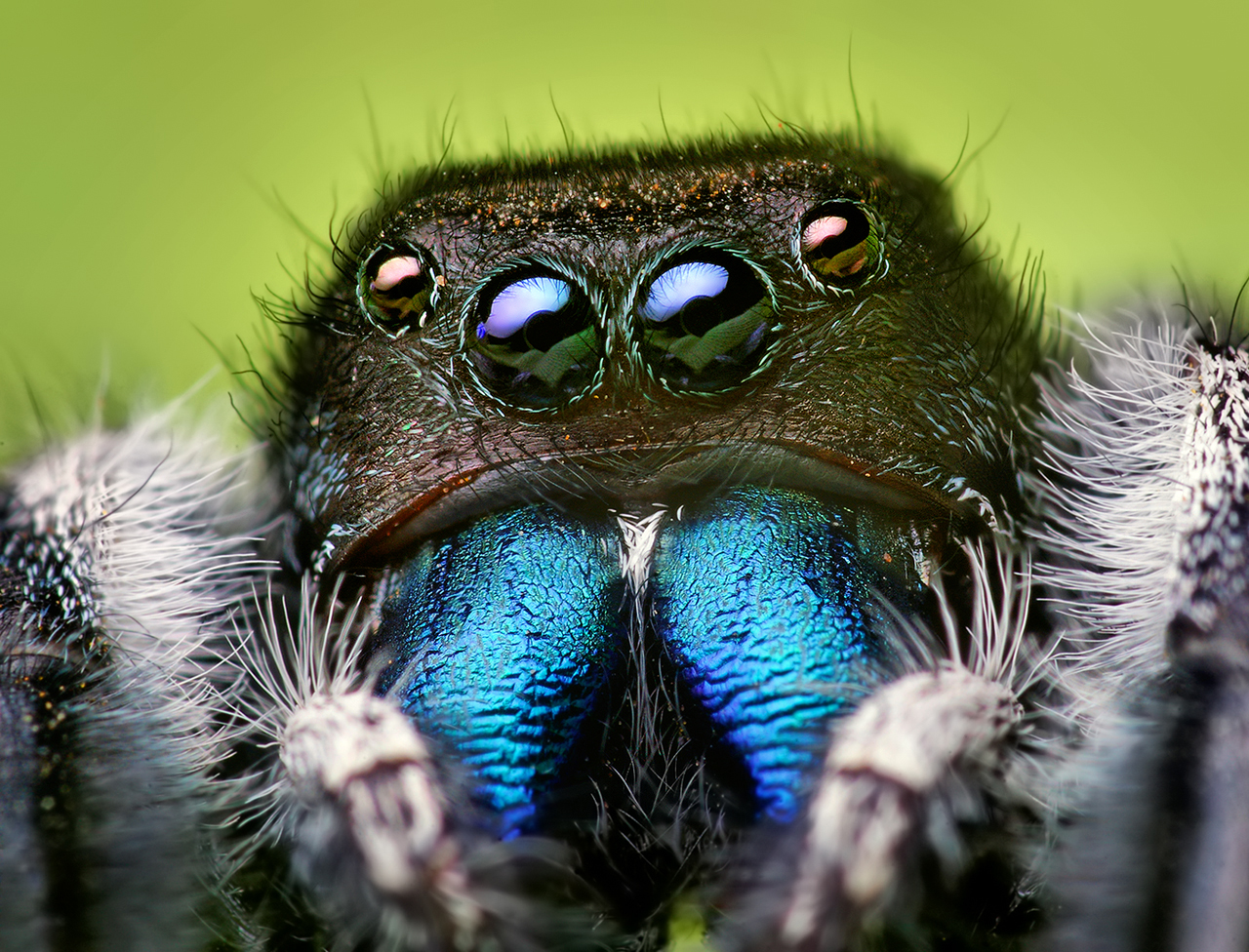Philippa Skett, intern at the Society of Biology, has been managing the spider enquiries for the House Spider Survey.
Some of the questions spider enthusiasts have asked since the launch of our House Spider Survey are centred on spider bites. Do spiders in the UK bite? Are they poisonous? Can they cause harm? What are the chances of becoming a superhero after a bite?
With my inbox slowly but surely filling up with such enquiries, I thought I would take this chance to answer everything in one fell swoop of toxic trivia.
The bad news is that nearly all spiders are venomous. The good news is that out of the approximately 660 spider species in the UK, only 12 of these are known to bite humans and no one has ever actually died from a UK spider bite.
There is one spider to keep at arms’ length here in the UK, and, recent news reports suggest that they seem to be spreading further inland. This is the false black widow spider (genus: Steatoda), and although they are unlikely to bite, they can cause swelling and tingling if they do.

A female specimen of the species Steatoda nobilis
Adopting an attitude to these species similar to that for bees should suffice- The NHS advises that should you suspect a false black widow spider bite you should simply observe your bite over time and look out for signs of infection.
Generally for most spider species, it is not the bite of a spider itself that triggers a reaction; the bite will be a pinprick of a cut and results in very little damage. The venom that is injected through the chelicerae, the mouthparts of a spider, is what causes the symptoms of a spider bite, induced by the multitude of small peptides the venom contains. These target ion channels or cellular receptors within the body, and for different species can cause neurotoxic or necrotic effects of varying severity.
Fortunately, many spider species have chelicerae that are too tiny to penetrate human skin. What’s even better is that the peptides may have medicinal functions that could be used for therapeutic treatment in humans.

A closer look at the chelicerae of a Phidippus audax, a spider from North America, that are brilliant blue
Venom peptides are highly resistant to degradation; their structure contains a unique motif called an inhibitor cysteine knot that delivers a chemical, thermal and biological stability not seen elsewhere in biomolecules. They also have a high specificity for the receptors and channels they bind to on cells, making them great resilient marker tools in the lab to investigate the functionality of their biological target.
Research has suggested that they could also be used as possible antimicrobial, antimalarial, antifungal or even antitumor agents because of the way in which they can influence cell membranes. The peptides can interact with other ion channels elsewhere in the body, altering cellular activity and hopefully elevating the symptoms of chronic pain, arrhythmia, and erectile dysfunction.
So next time you spot a spider, treat it with respect; although some here in the UK can pack a punch, some could also be harbouring medicinal miracles within their very own furry fangs. Sadly, there is no spider on Earth that can turn you into a superhero that we know of, although if we give science enough time, they may become heroes themselves one day.


After seeing some spiders men movies I got kinda fascinated by arachnids. Although the text has drawn my hope of becoming a super heroina it was very enlightening. I thought all spiders were poisonous, what is a lie, although there is little exceptions. My grandmother always told me be careful with spiders, and that a sting could kill me. Reading this text I found out that the moment after a sting can be too painful but rarely leads to death. I also realized that it`s not the sting that causes pain, but the venom injected into the wound. Oh, and thanks God, some spiders has got too tiny to penetrate human skin. What is even better is that the biological and chemical stability of the venom peptides makes it a possible antimicrobial, antimalarial, antifungal, or even antitumor agents.
I’m really going to treat spiders with more respect after this.
Congratulations for text, Philippa Skett